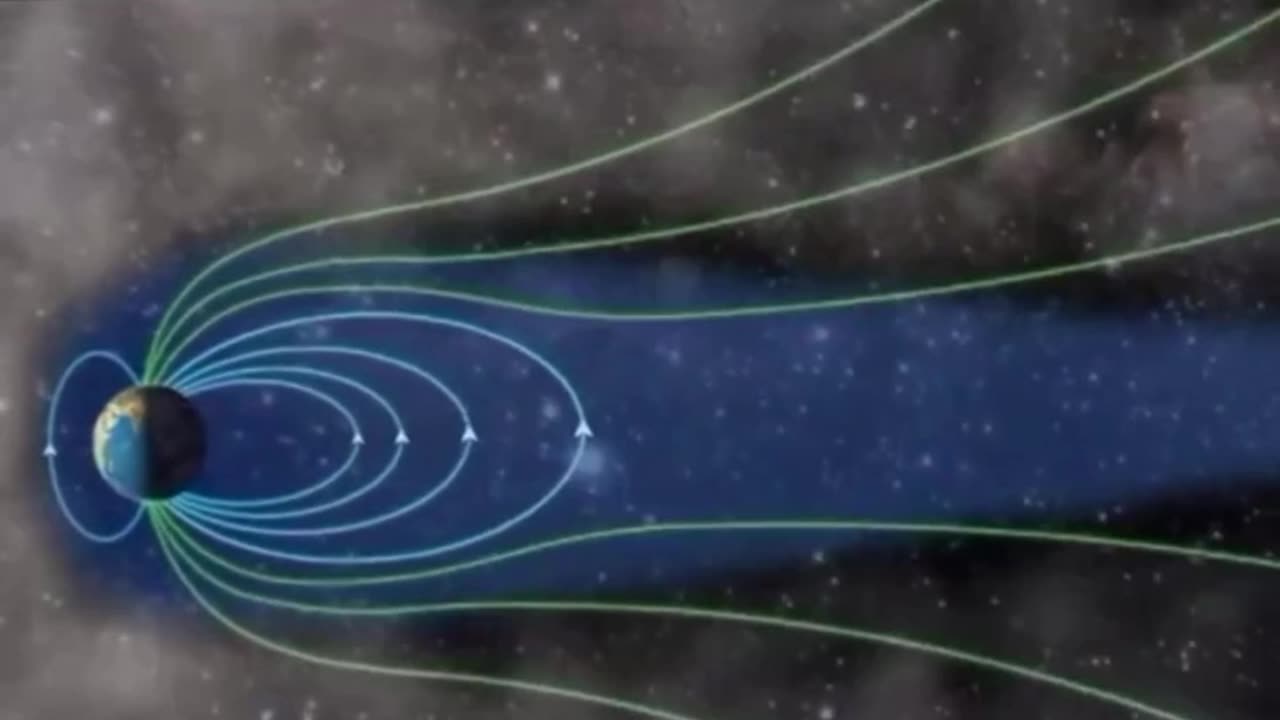Premium Only Content

How different planets react to Solar Storm?
Different planets in our solar system can react differently to solar storms, depending on factors such as their atmosphere, magnetic field, and proximity to the Sun. Here are some general ways in which different planets can be affected:
1. Earth: Solar storms, specifically coronal mass ejections (CMEs) and solar flares, can impact Earth's magnetic field and cause geomagnetic storms. These storms can disrupt radio communications, satellite operations, and power grids. They can also lead to beautiful auroras (Northern and Southern Lights) at high latitudes.
2. Mercury: Mercury has a weak magnetic field and a very thin atmosphere, so its response to solar storms is relatively minimal. However, increased solar activity can cause changes in the planet's exosphere (thin outer atmosphere) and induce temporary magnetic events.
3. Venus: Venus has a thick atmosphere composed mainly of carbon dioxide, which protects it from many direct effects of solar storms. However, fluctuations in the solar wind can lead to disturbances in the planet's ionosphere.
4. Mars: Mars has a very thin atmosphere and a weak magnetic field, so its response to solar storms is limited. However, increased solar activity can affect the planet's ionosphere and cause minor disruptions in communication systems used by robotic rovers.
5. Jupiter: Jupiter has a strong magnetic field, and its intense radiation belts trap charged particles. Solar storms can cause the planet's auroras to brighten and intensify. Jupiter's moon Io, which has active volcanoes, can also experience increased volcanic activity during solar storms.
6. Saturn: Saturn has a strong magnetosphere and displays impressive auroras at its poles. Solar storms can cause these auroras to become more active and dynamic.
7. Uranus and Neptune: These ice giant planets have their own unique magnetic fields and are primarily affected by their internal processes. Solar storms might have limited direct impact on them due to their significant distance from the Sun.
It's important to note that our understanding of how planets react to solar storms is continually evolving, and new discoveries are being made as we gather more data from space missions and observations.
-
 2:03:07
2:03:07
vivafrei
6 hours agoEp. 283: Charlie Kirk Memorial and other Stuff in the Law World
198K130 -
 9:13:12
9:13:12
The Charlie Kirk Show
16 hours agoLIVE NOW: Building A Legacy, Remembering Charlie Kirk
2.13M896 -
 1:55:20
1:55:20
The White House
9 hours agoPresident Trump Participates in the Memorial Service for Charlie Kirk
89.4K89 -
 1:02:41
1:02:41
Sarah Westall
7 hours agoDomestic Terror Operation: Death Threats, Smear Campaigns, Gang Stalking w/ Journalist Sarah Fields
37K7 -
 1:51:40
1:51:40
Nerdrotic
8 hours ago $11.13 earnedGobekli Tepe Discovery and "Reconstruction" | Forbidden Frontier #118
72.5K7 -
 29:07
29:07
Tactical Advisor
8 hours agoATF Changes Ruling on SBR & Tacpack unboxing | Vault Room Live Stream 039
80.5K15 -
 2:00
2:00
From Zero → Viral with AI
13 hours ago $2.40 earnedAre You Being Left Behind? Why AI Marketing is No Longer Optional
42.1K4 -
 9:10
9:10
BlackDiamondGunsandGear
11 hours agoI Finally Got it! / Rough Country Build Ep.1
29K8 -
 9:44
9:44
Millionaire Mentor
3 days agoCharlie Kirk Brings Woke Student To STUTTERING Over White Privilege Lies
31.7K9 -
 24:12
24:12
MudandMunitions
12 hours agoOff-Roading with NYPrepper Wild Elk & PA’s Most Remote Backroads
19.5K1